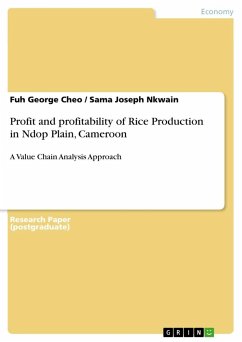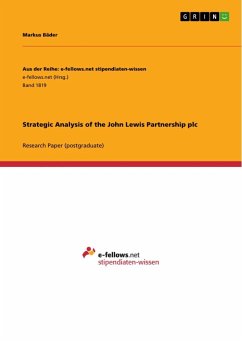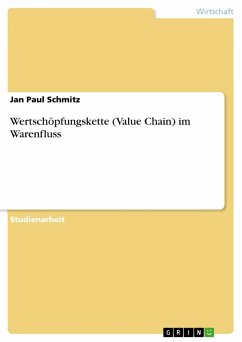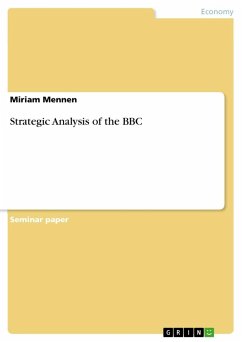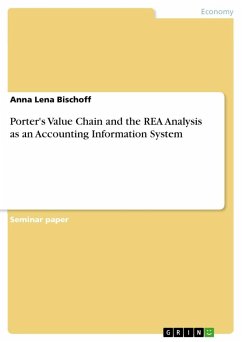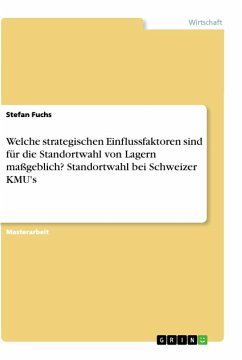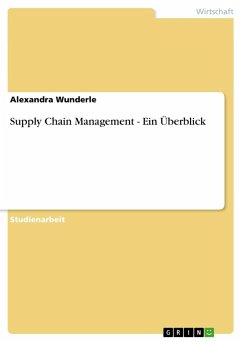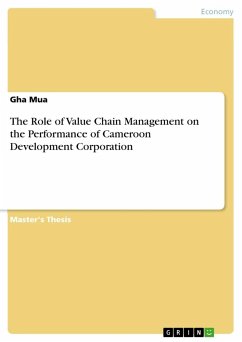Research Paper (postgraduate) from the year 2015 in the subject Business economics - Trade and Distribution, grade: 3.6/5, , language: English, abstract: This study has identified the main actors in the Ndop rice value chain in Cameroon, beginning with the cost of production at the farmer's level, then the costs or added values at each stage identified along the value chain. It has been shown that farmers incur a production cost of 114,6 Francs per kilogram of paddy rice, which they sell at 120 Francs to millers. In the process along the value chain it is shown that the millers make the highest profit. UNDVA gets the lion's share (154909,96 Francs) followed by the private miller (105504 Francs) per hectare, while the farmers gets only 27,200 Francs.Further analyses show that the farmer could improve his profit margin by 78,304 Francs if he mills his rice with the private millers and sells to a wholesaler and by 127,709 Francs a if he mills with UNDVA, if he was not financially handicapped and /or restrained from pursuing such an option. Also, the farmer's profit situation is sometimes worsened by local rice collectors when because of financial constraints he is lured into unfair production pre-financing deals involving taking loans from middlemen to repay in kind at harvest time and at giveaway rates. On other hand, millers further increase their lion's share of the profit from the sales of rice brand, a byproduct of milled rice, which is never handed to the farmer.Value chain analysis revealed the following weaknesses along the chain: the activities of the actors are as yet uncoordinated; income distribution is unequal and disfavors the farmers; returns to the farmers, who the principal actors, are discouragingly very low and due mainly to high cost of the labour intensive activities, unattractively low producer price(less than a third of the consumer price, and to financial constraints that hinder him from extending his production activities to include milling. Generally in the Cameroon rice market, Ndop rice is less competitive when faced with competition from imported rice, especially that imported from India and Vietnam whose higher quality attracts consumers to the extent that rice dealers prefer dealing with imported rice despite its higher cost, because the consumer market prices are high enough to give them profits higher by up to 1250 francs per 50 kilogram bag when compared to Ndop rice deals.
Hinweis: Dieser Artikel kann nur an eine deutsche Lieferadresse ausgeliefert werden.
Hinweis: Dieser Artikel kann nur an eine deutsche Lieferadresse ausgeliefert werden.

